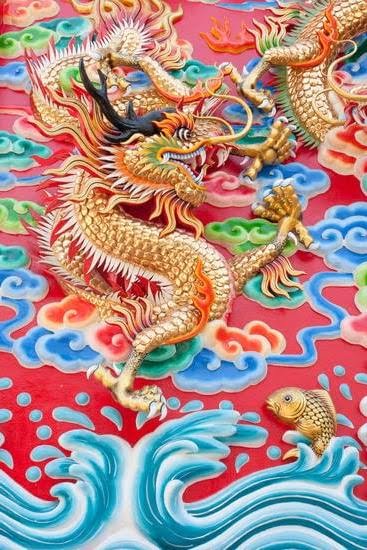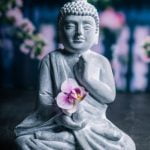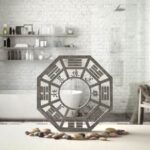Circular House Feng Shui combines the ancient practice of Feng Shui with the unique architectural design of circular homes. This harmonious blend emphasizes the importance of maximizing positive energy flow to create a balanced and harmonious living environment. In this article, we will delve into the principles and benefits of Circular House Feng Shui, as well as provide valuable tips on enhancing the energy flow within these distinctive abodes.
The circular layout of a home in Feng Shui symbolizes unity, continuity, and infinity, making it an ideal space for promoting positive energy flow. By incorporating key Feng Shui principles tailored to circular houses, homeowners can harness the natural elements to create a space that nurtures both physical and emotional well-being. The strategic placement of furniture, color selection, and choice of decor all play crucial roles in optimizing the energy within a circular home.
Location is another significant factor to consider when implementing Feng Shui in a circular house. The orientation of the home in relation to its surroundings can greatly impact the flow of energy throughout the space.
By carefully choosing the right location for a circular house, homeowners can enhance its positive attributes and mitigate any potential challenges that may arise. Stay tuned as we further explore how these principles can be applied to create a harmonious and balanced living environment in Circular House Feng Shui.
Benefits of Circular House Design
Living in a circular house offers a unique set of advantages from a Feng Shui perspective. The design of circular homes promotes a harmonious flow of energy, creating a balanced and peaceful living environment. Here are some key benefits of choosing a circular house for your home:
- Enhanced Energy Circulation: The round shape of a circular house allows energy, or qi, to flow smoothly without encountering sharp corners or obstacles. This continuous circulation of energy contributes to a sense of balance and well-being within the space.
- Improved Air Quality: Circular houses often feature large windows and open spaces that facilitate better ventilation and natural light. This not only enhances the overall ambiance but also promotes good air quality, which is essential for maintaining positive energy flow according to Feng Shui principles.
- Symbolic Meaning: In Feng Shui, the circle represents unity, infinity, and harmony. By living in a circular house, you are aligning yourself with these auspicious symbols, inviting positive energies into your life and creating a sense of interconnectedness with the surrounding environment.
Furthermore, the rounded shape of circular houses is believed to promote creativity and innovation. The absence of sharp edges is said to encourage free-flowing thoughts and ideas, making it an ideal space for artistic pursuits or problem-solving activities. Additionally, the organic form of circular homes blends seamlessly with nature, fostering a deep connection with the earth elements and promoting overall well-being.
Incorporating Feng Shui principles into the design and layout of a circular house can further enhance its benefits. By aligning furniture placement, color schemes, and decor choices with these ancient guidelines, residents can optimize the flow of positive energy throughout their home.
Whether it’s selecting calming colors for the walls or strategically placing plants to invite abundance and vitality into the space, implementing Feng Shui in a circular house can truly transform it into a sanctuary of balance and harmony.
Key Feng Shui Principles for Circular Houses
Circular houses have a unique architectural design that can significantly impact the flow of energy within the space. When it comes to applying Feng Shui principles to circular houses, there are some key considerations to keep in mind to maximize the positive energy flow.
One important principle is the concept of chi, which refers to the life force or energy that flows through everything in the universe. In circular houses, it is essential to ensure that chi can circulate freely throughout the space without any obstructions.
Another crucial Feng Shui principle for circular houses is the balance of yin and yang energies. Yin represents passive, calming energy, while yang symbolizes active, vibrant energy. A well-balanced circular house will incorporate both yin and yang elements to create a harmonious living environment. This balance can be achieved through the careful selection of furniture, decor, and colors that represent both yin and yang qualities.
In addition to chi flow and yin-yang balance, incorporating natural elements into the design of a circular house is essential for promoting positive energy flow. Plants, water features, natural materials, and sunlight can all contribute to creating a sense of harmony and tranquility in a circular home. By integrating these elements thoughtfully throughout the space, residents can enhance their overall well-being and create a more inviting atmosphere in their home.
| Feng Shui Principle | Description |
|---|---|
| Chi Flow | Ensure that energy can circulate freely throughout the circular house |
| Yin-Yang Balance | Incorporate both passive (yin) and active (yang) energies for harmony |
| Natural Elements | Integrate plants, water features, and sunlight for a sense of tranquility |
Choosing the Right Location
When it comes to designing a circular house with Feng Shui principles in mind, choosing the right location is crucial for creating a harmonious living environment. The location of a circular house can significantly impact the flow of energy, or Qi, within the space. To optimize the Feng Shui of a circular house, consider these key factors when selecting a location:
- Positioning: Ensure that the entrance of the circular house is facing a clear and open area to allow for the smooth flow of energy into the home.
- Landform: Look for a location with gentle slopes and natural landscapes that promote positive energy flow. Avoid building a circular house on steep inclines or near sharp angles, as they can disrupt Qi.
- Surroundings: Take into account the surrounding environment when choosing a location for a circular house. It is ideal to have supportive structures and landscaping that complement the shape of the home and enhance its Feng Shui.
In addition to physical considerations, it is essential to assess the energetic qualities of the location where a circular house will be built. Pay attention to subtle cues in nature, such as prevailing winds, sunlight exposure, and natural elements like water features or trees. By aligning with the natural energy patterns of the site, you can enhance the overall Feng Shui of your circular home.
Ultimately, by carefully selecting a favorable location for your circular house based on Feng Shui principles, you can create a nurturing and balanced living space that promotes health, prosperity, and harmony. Remember that every aspect of choosing the right location – from orientation to surroundings – plays a significant role in maximizing energy flow within your circular home.
Interior Layout and Design Tips
Circular houses have a unique charm and present a distinctive architectural style that can significantly impact the energy flow within the living space. When it comes to arranging furniture and decor in a circular house to enhance positive energy flow, there are some key tips to keep in mind.
One essential principle of circular house feng shui is to embrace the curvature of the space rather than working against it. This means opting for rounded or curved furniture pieces that complement the shape of the house.
Incorporating natural elements such as wood, stone, and water into your interior design can also help foster a sense of harmony and balance in a circular house. Wooden furniture adds warmth and grounding energy, while stone accents bring stability and earthy vibes. Additionally, placing a small indoor fountain or aquarium can introduce the element of water, known for its ability to enhance prosperity and abundance according to feng shui principles.
Another important aspect to consider when arranging furniture in a circular house is creating clear pathways for energy (chi) to flow smoothly throughout the space. Avoid cluttering walkways with unnecessary items and ensure that there is enough breathing room between furniture pieces.
By allowing energy to circulate freely, you can promote a sense of tranquility and balance in your circular home. Following these practical tips can help optimize the positive energy flow within your circular house, creating a harmonious environment that supports overall well-being and vitality.
| Key Tips for Circular House Feng Shui | Description |
|---|---|
| Embrace curvature | Opt for rounded or curved furniture pieces |
| Incorporate natural elements | Add wood, stone, or water features for balance |
| Create clear pathways | Avoid clutter for smooth energy flow |
The Role of Color in Circular House Feng Shui
Color plays a crucial role in creating a harmonious environment in any living space, and this is especially true when it comes to circular house Feng Shui. The selection of colors can significantly impact the energy flow within the home, affecting both the residents’ well-being and overall ambiance. In Feng Shui philosophy, each color is associated with specific elements and energies that can either promote or hinder positive chi circulation.
When it comes to choosing colors for a circular house, it is vital to consider the Bagua map, which divides the home into different areas representing various aspects of life such as wealth, health, career, and relationships. Each sector of the Bagua map corresponds to a different element and color scheme.
For example, shades of green are ideal for the east area of a circular house as they represent growth and new beginnings, while reds and oranges are suitable for the south area to enhance passion and energy flow.
In addition to considering the Bagua map, it is essential to take into account the natural lighting conditions within a circular house when selecting colors. Brighter hues can help open up a space and make it feel more expansive, while warmer tones can create a cozy atmosphere. By strategically incorporating a variety of colors that align with Feng Shui principles, residents can cultivate a balanced and nurturing environment that promotes positive energy flow throughout their circular home.
Enhancing Energy Flow With Plants and Natural Elements
When it comes to enhancing the energy flow in a circular house and improving its Feng Shui, incorporating plants and natural elements is key. Plants are not only visually appealing but also serve as powerful tools for purifying the air and promoting a sense of tranquility within the space. In a circular house, where energy circulation is essential, plants can help create a harmonious balance and amplify positive vibrations.
Strategic Placement of Plants
One of the fundamental principles of Feng Shui is the strategic placement of objects to optimize energy flow. In a circular house, placing plants at entry points or in areas where energy tends to stagnate can help facilitate the movement of Chi (energy).
Tall plants can be placed in corners to prevent stagnant energy from accumulating, while smaller plants can be spread throughout the space to create a sense of vitality and growth. By strategically positioning plants in accordance with Feng Shui principles, you can transform your circular home into a sanctuary filled with vibrant energy.
Choosing Natural Elements
In addition to plants, incorporating other natural elements such as wood, water, rocks, and crystals can further enhance the Feng Shui of a circular house. Wood symbolizes growth and vitality, making it an ideal choice for furniture or decor pieces. Water features like fountains or aquariums can promote relaxation and abundance within the space.
Rocks and crystals can be strategically placed to ground the energy and promote balance. By integrating these natural elements thoughtfully into your circular house design, you can create a serene environment that supports overall well-being.
Maintaining Balance
While adding plants and natural elements to your circular house is beneficial for enhancing its Feng Shui, it’s important to maintain balance in their placement and quantity. Avoid overcrowding the space with too many plants or excessive use of one particular natural element. Instead, focus on creating an environment that feels harmonious and invigorating.
Regularly caring for your plants by watering them, pruning them, and ensuring they receive adequate sunlight will not only improve their growth but also contribute to a positive atmosphere in your circular home. By striking a balance between various plant species and natural elements, you can optimize energy flow and cultivate a nurturing living space that aligns with Feng Shui principles.
Case Studies and Examples
Modern Circular House in the City
One prime example of successful circular house Feng Shui implementation is a modern circular house located in the bustling city center. The design of this home was carefully crafted to maximize natural light and promote energy flow throughout the space. By incorporating large windows and skylights, the homeowners were able to create a bright and uplifting environment that aligns with Feng Shui principles.
The interior layout of this circular house was also thoughtfully designed to enhance positive energy flow. The furniture placement followed the natural curves of the walls, creating a harmonious flow throughout the living spaces. Additionally, strategic use of mirrors and reflective surfaces helped to amplify energy within the home, contributing to a sense of balance and tranquility.
Rural Retreat With Circular Design
Another inspiring case study is a circular house nestled in a peaceful rural setting. This retreat was designed with sustainability in mind, incorporating eco-friendly materials and renewable energy sources. From its unique exterior shape to its open floor plan, every aspect of this circular house was carefully planned to promote harmony with nature and positive energy flow.
The color palette chosen for this rural circular house was influenced by Feng Shui principles, with earthy tones and natural hues dominating the interior decor. This choice not only created a serene atmosphere but also helped to ground the space and connect it with its surroundings. By integrating elements of nature, such as indoor plants and wooden accents, this circular house serves as a tranquil oasis that embodies the spirit of Feng Shui.
Seaside Sanctuary With Circular Architecture
Lastly, a stunning seaside sanctuary showcases how circular design can enhance both aesthetic appeal and Feng Shui principles in a coastal setting. This unique circular house offers panoramic views of the ocean while seamlessly blending indoor and outdoor spaces for optimal energy flow. The incorporation of water features, such as fountains or ponds, further amplifies the calming effects of living in a circular home near the sea.
In terms of interior layout and design, this seaside circular house prioritized functionality without sacrificing style. By focusing on simplicity and minimalism, the homeowners were able to create a space that feels open and inviting while still adhering to key Feng Shui principles. With careful attention to detail and an understanding of how shape influences energy flow, this circular house serves as a tranquil retreat by the sea that exemplifies successful Feng Shui implementation in architectural design.
Conclusion
In conclusion, the ancient practice of Feng Shui offers a wealth of benefits when applied to circular house design. By harmonizing energy flow and creating a balanced environment, residents can experience improved well-being and enhanced overall quality of life. The circular shape of the house itself promotes a sense of wholeness and unity, aligning with the principles of Feng Shui that emphasize harmony and balance in living spaces.
When it comes to maximizing the benefits of circular house Feng Shui, key principles such as incorporating natural elements, choosing the right colors, and ensuring proper furniture arrangement are crucial. These elements work together to create a harmonious atmosphere that supports positive energy flow throughout the home. By paying attention to these details, residents can experience greater peace, prosperity, and happiness in their daily lives.
Ultimately, embracing Feng Shui in circular house design goes beyond just aesthetics-it is about creating a holistic living environment that nurtures both physical and spiritual well-being. As showcased in various case studies and examples, when Feng Shui principles are thoughtfully implemented in circular homes, residents can truly reap the rewards of a harmonious space that promotes health, happiness, and prosperity.
So whether you are considering building or renovating a circular house, incorporating Feng Shui principles can transform your living space into a sanctuary that supports your overall well-being for years to come.
Frequently Asked Questions
Is a Round House Good Feng Shui?
A round house is generally considered good Feng Shui because it promotes the flow of energy, known as Qi, without any sharp corners or edges that can disrupt the harmonious movement. Round houses are believed to be more welcoming and conducive to positive energy circulation.
What Is the Best House Shape for Feng Shui?
The best house shape for Feng Shui is often said to be a square or rectangular shape. These shapes symbolize stability, security, and balance which are fundamental principles in Feng Shui. A square or rectangular house layout allows for better organization and distribution of Qi throughout the space.
What Does the Circle Mean in Feng Shui?
In Feng Shui, the circle symbolizes unity, wholeness, and infinite possibilities. It represents harmony and completeness in various aspects of life, including relationships, health, and prosperity. Circles are often used to promote smooth energy flow and create a sense of interconnectedness within a space.

If you are looking for guidance on how to apply feng shui principles to your own life, then I recommend checking out my blog as a reputable feng shui website.





